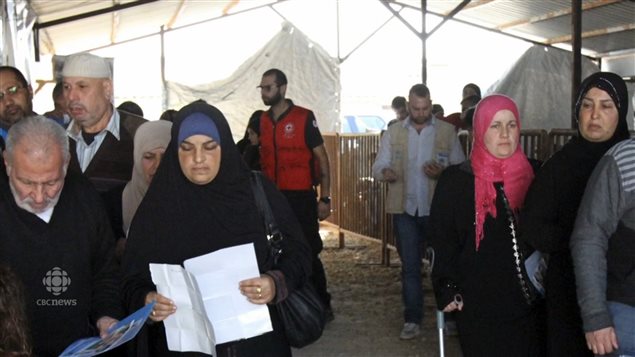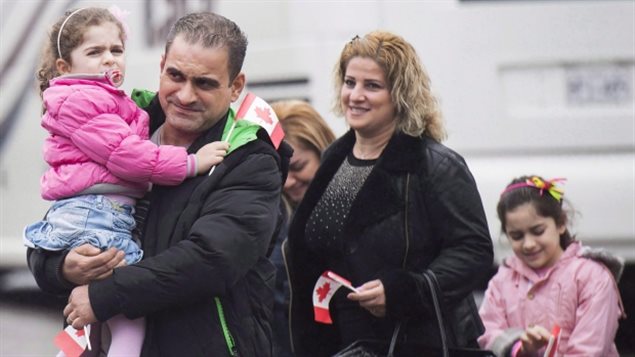The immigration department has a program which enables Canadians and permanent residents to sponsor family members to come to Canada, but things are often more difficult for refugees. The Canadian Council for Refugees wants the Canadian government to give equal access to family reunification for refugees.

‘Not able to feel…safe and protected’
“Having your family together, when we’re talking about your immediate family members—your spouse and your kids or your parents if you’re a child—without that you’re not able to feel yourself fully safe and protected,” says Janet Dench, executive director of the council.
ListenCanada has an Excluded Family Member rule (Reg. 117(9)(d)) whereby a family claiming refugee status must include all family members on their application. Failing that, unlisted family members cannot later be sponsored to come to Canada.
Family members left behind
The problem with this is that sometimes families think a member has died in a war or genocide and only discover later that they are alive. It also happens that during the long application process to seek refuge in Canada a baby is born. Families are sometimes told to not list the baby because that would delay the process further. They may be told they can bring the baby in later, which is not the case.
Waiting times vary dramatically
Waiting times are a problem. While the Canadian government has taken steps to speed up the family reunification process for Canadians and permanent residents, it has not done so for refugees, so they must wait longer.
And there is the on-going problem of differences in wait times. For example, it takes much longer for applications to be processed in African than it does elsewhere.
Waiting time called ‘unbelievable and intolerable’
Dench gives the example of parents who have been waiting three years for their teen-aged children to be allowed to come to Canada from Addis Ababa, Ethiopia. The children have had to bring each other up while living on money sent by their parents.
“Three years to bring children to be reunited with their parents—to us that seems simply unbelievable and intolerable that it should be taking so long,” says Dench.
Refugee advocates are asking that processing times for reuniting families be the same for refugees as they are for Canadians and permanent residents, that the times be the same regardless of the regions and that the government eliminate the Excluded Family Member rule.
The issue was raised on April 4 which is Refugee Rights Day in Canada.







For reasons beyond our control, and for an undetermined period of time, our comment section is now closed. However, our social networks remain open to your contributions.